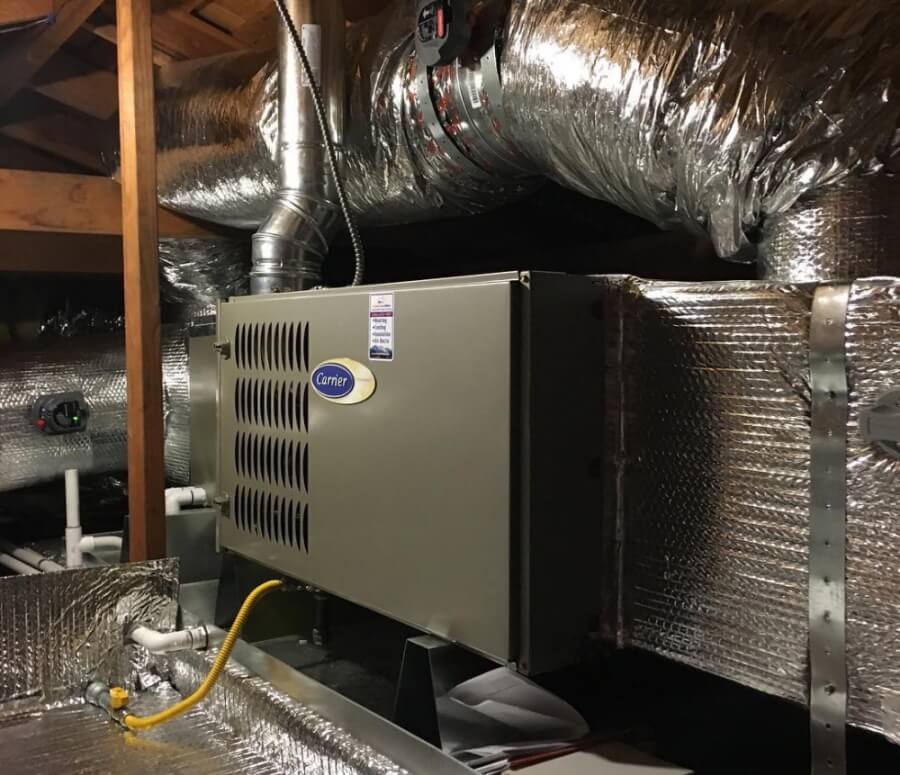Top HVAC Portland contractors ready to maintain your system
Top HVAC Portland contractors ready to maintain your system
Blog Article
The Ultimate Guide to Heating System Installment for a Cozy Home
Heating system installment is a critical element of maintaining a comfy home setting, specifically throughout the cooler months. As you think about these factors, the inquiry continues to be: what actions can you take to guarantee your furnace serves you well for years to come?
Types of Furnaces

Gas furnaces are the most common selection as a result of their performance and reduced operational expenses. They make use of gas or gas, giving quick home heating and consistent efficiency, making them perfect for cooler environments.
Electric heaters, while usually less complicated to mount and maintain, tend to have higher operational expenses. They are usually preferred in areas where gas service is unavailable or for homes with existing electric framework.
Oil heaters, though much less usual today, stay a viable alternative in particular areas. They melt home heating oil, which can be beneficial during colder months, yet their reliance on oil delivery postures potential challenges.
In addition, there are high-efficiency models offered across these kinds, which can dramatically decrease energy consumption and utility bills - furnace installation. Eventually, understanding these furnace types will assist homeowners select a system that straightens with their home heating needs, budget plan, and power choices
Selecting the Right Dimension
Selecting the proper size for a heater is critical to ensuring optimum efficiency and energy performance. A small furnace will battle to keep comfortable temperature levels throughout the chilly months, bring about increased damage, greater energy expenses, and possible system failure. On the other hand, an oversized heater may cycle on and off also frequently, leading to ineffective heating and uneven temperature distribution within the home.
To identify the right furnace size, an estimation called the Handbook J tons computation need to be carried out. This process reviews numerous factors, including the square video of the home, insulation degrees, window dimensions, and local environment problems. This detailed evaluation ensures that the furnace satisfies the specific heating demands of the room.

Installation Refine Review
In regards to products, you will certainly need ductwork, insulation, and sealing tape to make certain ideal air movement and power effectiveness - furnace installation. It is likewise important to have a brand-new heater filter handy, together with venting materials, such as PVC pipeline or steel flue, depending upon the kind of furnace being mounted
Security tools, including handwear covers, safety glasses, and a face mask, is also vital to protect against dust and particles throughout setup. Having all these devices and products readily available not only streamlines the procedure however additionally boosts the security and effectiveness of the heating system setup.
Maintenance Tips for Durability
To guarantee the long life of your furnace, it is vital to carry out a normal maintenance routine that attends to crucial elements of the system. Begin by changing or cleansing the air filter each to 3 months, as a stopped up filter can restrict airflow and lower efficiency. In addition, evaluate and cleanse the blower assembly to avoid dust buildup that can impede performance.
Next, inspect the thermostat setups and rectify if necessary to ensure exact temperature level law. Evaluate the ductwork for leaks or clogs, as this can bring about power loss and uneven heating. Consistently oil the motor and bearings according to the manufacturer's referrals to lessen deterioration.
Professional inspections must happen every year, where his explanation a qualified technician can assess the heating system's general problem, check for gas leaks, and make sure that security functions are functioning properly. Take into consideration setting up a programmable thermostat to maximize energy usage and maintain regular home temperatures. useful source By taking on these upkeep methods, you can boost your heating system's effectiveness, prolong its lifespan, and ultimately appreciate a relaxing and comfortable home setting.
Conclusion

Report this page